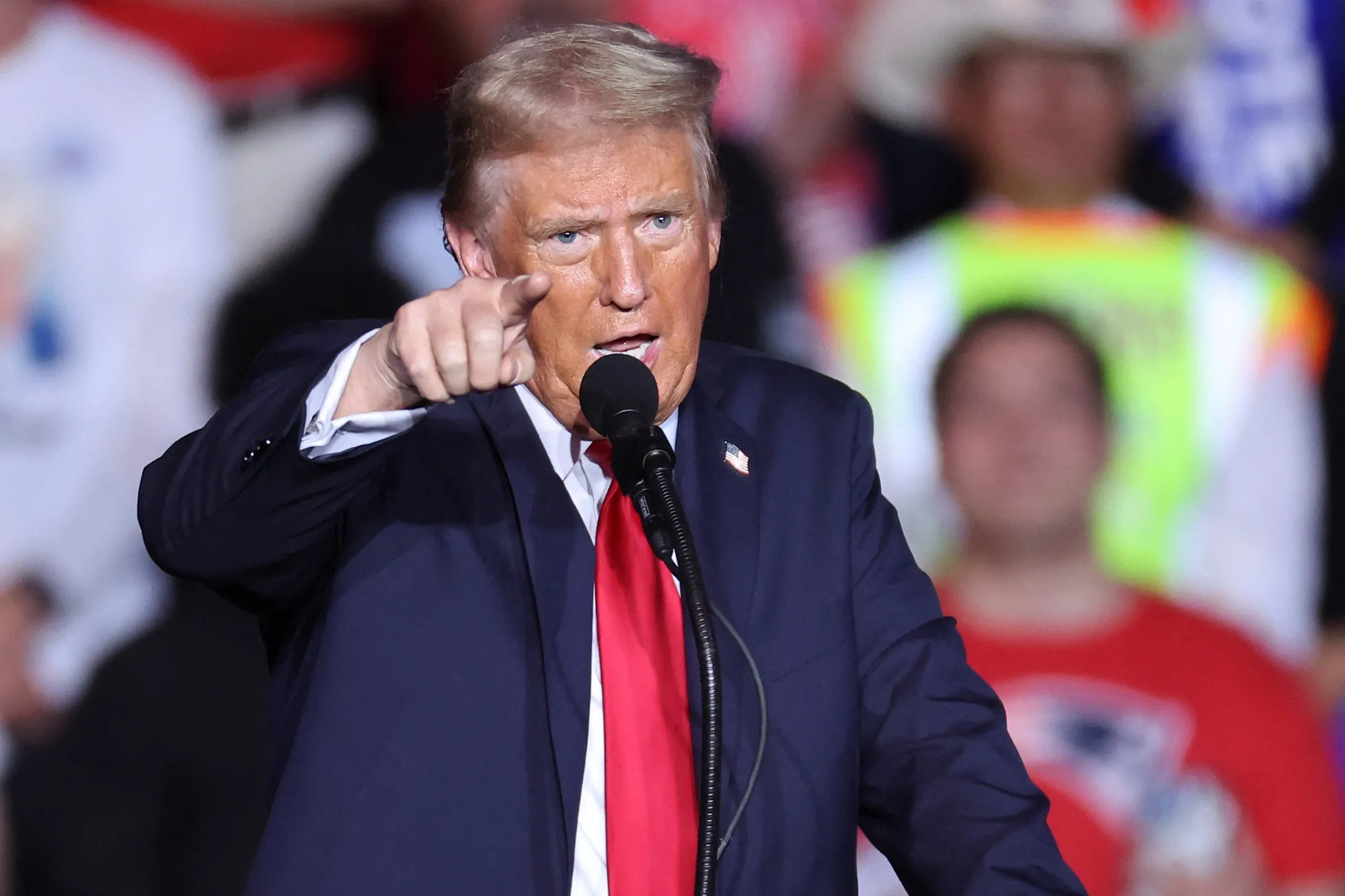
President-elect Donald Trump has announced a bold plan to attract large-scale investments into the U.S. economy by offering special perks for any individual or company that invests $1 billion or more.
In a post on his Truth Social platform, Trump revealed that these investors will receive expedited approvals and permits, including fast-tracked environmental clearances. This proposal is part of Trump's broader strategy to drive economic growth through deregulation, a hallmark of his first term that he plans to expand even further during his second stint in the White House.
"Any person or company investing ONE BILLION DOLLARS, OR MORE, in the United States of America, will receive fully expedited approvals and permits, including, but in no way limited to, all Environmental approvals," Trump declared. Ending his post with characteristic flair, he added, "GET READY TO ROCK!!!"
The initiative builds on Trump's well-known efforts to reduce bureaucratic red tape. Early in his first term, Trump issued Executive Order 13771, which required that for every new regulation introduced, two existing regulations must be eliminated.

His regulatory rollback was seen as one of the most aggressive in modern U.S. history. Now, Trump plans to go even further, pledging to eliminate 10 regulations for every new one implemented during his second term, signaling a dramatic escalation of his deregulatory agenda.
Trump’s regulatory strategy stands in sharp contrast to that of President Joe Biden, whose administration has overseen a historic surge in new regulations. As of December 3, 2024, Biden’s administration had filled 96,088 pages in the Federal Register, the official record of government rules and regulations — the most ever recorded in a single year.
The previous record was set in 2016 by President Barack Obama, whose administration filled 95,894 pages in his final year. If Biden’s current pace continues, his administration is on track to surpass 100,000 pages by the end of his term, marking an unprecedented level of regulatory expansion.
Critics of Biden's regulatory push argue that the increase in rules places an undue burden on businesses, particularly in key sectors like energy and manufacturing. Trump’s latest proposal to streamline approvals and fast-track permits for billion-dollar investors is being framed as a direct response to what his supporters view as excessive government overreach under Biden.

Trump’s return to the White House in January is expected to bring a complete reversal of Biden’s approach. By prioritizing large-scale investors and offering them exclusive access to expedited environmental and regulatory permits, Trump hopes to position the U.S. as a prime destination for massive global investments.
During his first term, Trump's deregulation policies were credited with accelerating infrastructure projects and stimulating the energy sector, and he plans to revive that momentum. This time, however, the stakes are higher.
Trump has promised to eliminate 10 regulations for every new one — a radical escalation from his previous 2-for-1 policy. His supporters view it as a necessary step to drive growth, but critics argue that such sweeping deregulation could have negative consequences for the environment, safety standards, and public health.
Environmental groups have already expressed concern that fast-tracking permits for billion-dollar projects may lead to inadequate environmental reviews, potentially causing long-term harm to ecosystems and local communities. However, Trump and his allies insist that the plan will drive job creation and economic growth.

By promising a simplified regulatory process, Trump aims to lure private equity firms, multinational corporations, and high-profile investors into funding large infrastructure, energy, and industrial projects. His messaging emphasizes "America First" economics, encouraging businesses to choose the U.S. over other global markets.
Proponents of the plan believe it will attract a wave of capital inflows, revitalizing key sectors of the economy and creating thousands of new jobs. With Republicans also regaining control of both chambers of Congress, Trump appears well-positioned to push his agenda through without major resistance from lawmakers.
Business leaders and investors are watching closely to see how Trump's promises materialize once he takes office in January. His pledge to remove regulatory hurdles for billion-dollar investors is already being seen as a major boon for corporations seeking to expand their operations in the U.S.

By simplifying the approval process and cutting down on red tape, Trump hopes to secure America’s place as the top choice for major global investments. Critics, however, remain skeptical.
They argue that Trump's pledge to eliminate 10 regulations for every one added could have unintended consequences, particularly in areas like health, safety, and environmental protection. If Trump's aggressive deregulation strategy goes unchecked, environmental advocates warn that communities near industrial sites could face increased risks from pollution, toxic waste, and resource depletion.
Nevertheless, Trump’s promise to clear obstacles for big investors aligns with his broader mission to restore U.S. economic dominance on the global stage. By January, his new administration will be in a position to make good on that promise. As Trump himself declared, “GET READY TO ROCK!”



